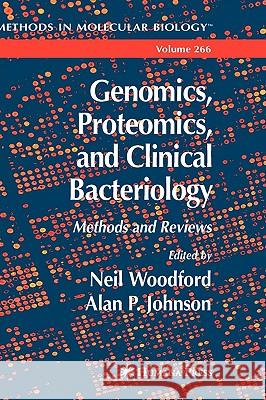Genomics, Proteomics, and Clinical Bacteriology: Methods and Reviews » książka
Genomics, Proteomics, and Clinical Bacteriology: Methods and Reviews
ISBN-13: 9781588292186 / Angielski / Twarda / 2004 / 398 str.
Gazing into crystal balls is beyond the expertise of most scientists. Yet, as we look further into the 21st century, one does not have to be Nostradamus to predict that the current genomics and proteomics "revolution" will have an immense impact on medical bacteriology. This impact is already being re- ized in many academic departments, and although encroachment on routine diagnostic bacteriology, particularly in the hospital setting, is likely to occur at a slower pace, it remains nonetheless inevitable. Therefore, it is important that no one working in bacteriology should find themselves distanced from these fundamental developments. The involvement of all clinical bacteriologists is essential if the significant achievements of genome sequencing and analysis are to be turned into tangible advances, with resulting benefits for patient care and m- agement. It is our hope that Genomics, Proteomics, and Clinical Bacteriology: Methods and Reviews will play a part in bringing such a development to fruition. The advances in genomics and proteomics have already given us frequent opportunities to reassess our knowledge and understanding of established b- terial adversaries, and have provided us with the means to identify new foes. The new knowledge gained is enabling us to reconsider, for example, our c- cepts of bacterial pathogenicity, phylogeny and novel targets for antibacterial chemotherapy. These topics, and others, are considered in Genomics, Proteomics, and Clinical Bacteriology: Methods and Reviews.











